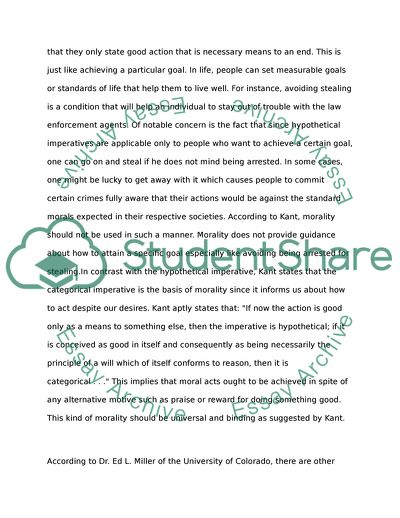Cite this document
(The Examination of Kants Grounding for the Metaphysics of Morals Essay Example | Topics and Well Written Essays - 2500 words, n.d.)
The Examination of Kants Grounding for the Metaphysics of Morals Essay Example | Topics and Well Written Essays - 2500 words. https://studentshare.org/philosophy/1810155-the-examination-of-kants-grounding-for-the-metaphysics-of-morals
The Examination of Kants Grounding for the Metaphysics of Morals Essay Example | Topics and Well Written Essays - 2500 words. https://studentshare.org/philosophy/1810155-the-examination-of-kants-grounding-for-the-metaphysics-of-morals
(The Examination of Kants Grounding for the Metaphysics of Morals Essay Example | Topics and Well Written Essays - 2500 Words)
The Examination of Kants Grounding for the Metaphysics of Morals Essay Example | Topics and Well Written Essays - 2500 Words. https://studentshare.org/philosophy/1810155-the-examination-of-kants-grounding-for-the-metaphysics-of-morals.
The Examination of Kants Grounding for the Metaphysics of Morals Essay Example | Topics and Well Written Essays - 2500 Words. https://studentshare.org/philosophy/1810155-the-examination-of-kants-grounding-for-the-metaphysics-of-morals.
“The Examination of Kants Grounding for the Metaphysics of Morals Essay Example | Topics and Well Written Essays - 2500 Words”. https://studentshare.org/philosophy/1810155-the-examination-of-kants-grounding-for-the-metaphysics-of-morals.


